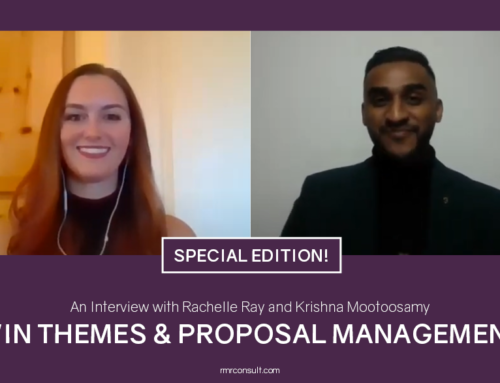The PPQ Trick(s) You’re Probably Not Using
Federal proposals are cumbersome, labor-intensive beasts. Unfortunately, part of the response effort falls onto your clients if you’re required to submit Past Performance Questionnaires (PPQs). PPQs are a government form that contracting agencies use to gauge a potential contractor’s past performance. Rankings range from ‘Excellent’ to ‘Unsatisfactory’ and can have a significant impact on your overall proposal scoring.
If you’re responding to multiple federal proposals throughout the year, chances are you’re reaching out to clients with a slightly sheepish email, asking them to complete yet another PPQ and send it off to the latest government branch you’re proposing to. (Side note: Why can’t they just talk to each other?!) Not only that, you’re probably sending those clients multiple emails to follow up on the completion of the form and make sure it was submitted to the contracting agency on time. Talk about blowing up someone’s email!
It’s annoying, and often uncomfortable, to ask a client to repeatedly sing your praises. Even if you have a fantastic relationship with them, they’re eventually going to get annoyed with the onslaught of PPQs. Of course, you can ask nicely. You can send chocolates. You can apologize profusely. But you still have to ask.
What’s a marketer to do?
My ‘Trick’ To Making the PPQ Process Less Painful
This isn’t really a trick; in fact, it’s probably better filed under ‘good advice’. Call it what you will, it works wonders on sustaining client relationships AND getting good PPQ responses. Plus, it’s relatively easy.
The first time (or the next time) you send your clients a PPQ, ask if they’ll return a copy to you (if they aren’t already sending them to you – government proposals often require clients to submit PPQs directly to the agency requesting the RFP). If you’ve already done this, or already have PPQs on file – GREAT! You’re one step ahead.
The next time you’re required to submit PPQs, attach the previously completed PPQ to your email so that your client can simply copy over or reuse their answers. It saves them a ton of time and shows them that you care about the amount of time they’re spending on these questionnaires.
*Note: For PPQs that are submitted directly to a contracting officer, clients are not required to send you a copy. If they won’t send you a copy for your records, try letting them know exactly why you need it and what you plan to do with it.
Make PPQs Simple for Your Clients
The trick to getting your clients to complete PPQs over and over (and over and over) is to make the process as quick and painless as possible for them. This does double duty: it shows your clients you’re respectful of their time, and it encourages them to provide more positive responses (since they’re not annoyed with you for sending yet another questionnaire). Some tips for simplifying the process:
- Make the form fillable or editable.
- Provide prompts for comments (these can come from letters of recommendation, previous PPQs, emails, or wherever your client has said something positive about your work).
- Pre-complete the PPQ for them. This can come across as presumptuous, so base your answers off of a previously completed PPQ and make sure to let your client know they can change any of the answers. Assure them that you’ve only done this because you understand how much time these take to complete, and are trying to be conscious of their time.
Make This PPQ Trick Work for You
You spend hours tailoring your proposal to an RFP. It’s possible to tailor client recommendations too! Here are a few tips on how to prompt your client into providing comments that make the review committee say ‘Excellent! They’ve done this before, and they did it well!’:
- Use buzzwords from the RFP (the same way you use them in your proposal narratives) in the prompts that you send to your clients. Look for these words wherever you’re pulling quotes from; if you can’t find any, see if you can slightly rework a comment to fit one.
- Remind your client about a particular aspect of the project that is relevant to your proposal, and ask them to focus on that in their comments. (You can also remind them that you did a phenomenal job handling that particular aspect of the project.)
- Reiterate how important comments are. Clients will often skip or skimp on the comments section, which is a missed opportunity for you.
One Last Piece of Advice
PPQs aren’t just for Federal proposals! Don’t just file them away and leave them to gather pixel-dust until your next bid. Mine the comments for good quotes to sprinkle in other proposals and see if you can use the responses as a substitute for a client satisfaction survey. If you scored low (or lower than you thought you deserved), use the PPQ as an opportunity to follow up with your client and see where you can improve.






Leave A Comment